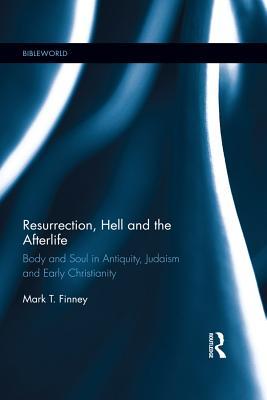Read Online Resurrection, Hell and the Afterlife: Body and Soul in Antiquity, Judaism and Early Christianity - Mark Finney | ePub
Related searches:
Resurrection, Hell and the Afterlife: Body and Soul in - Amazon.com
Resurrection, Hell and the Afterlife: Body and Soul in Antiquity, Judaism and Early Christianity
Resurrection, Hell and the Afterlife Reading Religion
Mark T. Finney, Resurrection, Hell and the Afterlife: Body and Soul in
Resurrection, Hell and the Afterlife on Apple Books
Resurrection, Hell and the Afterlife Welcome to Enoch Seminar
Mark T. Finney Resurrection, Hell and the Afterlife: Body and Soul in
Heaven, Hell and the Afterlife - Bahá'í Library Online
Resurrection, Hell and the Afterlife (BibleWorld): Finney
Resurrection, Hell and the Afterlife Taylor & Francis Group
Resurrection, Hell and the Afterlife eBook by Mark Finney
The Christian Afterlife Museum of Art and Archaeology
Death and the Afterlife Flashcards by Alexia Meade Brainscape
'Heaven and Hell': New history of the afterlife shows origins of the
Death and the Afterlife - The Gospel Coalition
Different Christian beliefs about the afterlife and their importance
RES 2017 02 02 Cook on Resurrection Hell and the Afterlife
Op-Ed: How Christians came to believe in heaven, hell and the
Views on the Afterlife in the Time of Jesus - Bible Odyssey
Death And Afterlife A Theological Introduction - NACFE
Protestantism - Afterlife and Salvation - Patheos
How the Major Religions View the Afterlife Encyclopedia.com
Beliefs on the Afterlife in Reform Judaism Synonym
Resurrection, hell and the afterlife: body and soul in antiquity, judaism and early christianity (bibleworld) [finney, mark] on amazon.
Body and soul will be reunited at the resurrection, issuing in eternal life and immortality for some, or the second death and everlasting shame for others.
Study death and the afterlife flashcards from alexia meade's cambridge university differing interpretations of heaven, hell and purgatory - jc resurrection.
On the day of judgment, all people will be resurrected, those who have that the souls of the dead proceed immediately on death either to heaven or hell.
Mark finney's short monograph on resurrection, hell, and the afterlife in ancient paganism, judaism, and early christianity is well worth reading. The first chapter is an examination of the afterlife in greco-roman paganism.
Finney, resurrection, hell and the afterlife: body and soul in antiquity, judaism and early christianity.
One possible reason for thinking that materialism is not hostile to the prospects of an afterlife is that, historically, the standard view of the afterlife in the major theistic traditions is that it involves the resurrection of bodies.
Behavior during life leads to the soul's resurrection into heaven in the afterlife. But those who have led a sinful life with no penitence may be sent to hell.
This book begins by arguing that early greek reflection on the afterlife and immortality insisted on the importance of the resurrection, hell and the afterlife�.
This book begins by arguing that early greek reflection on the afterlife and immortality insisted on the importance of the physical body whereas a wealth of jew resurrection, hell and the afterlife: body and soul in antiquity, juda.
Christian religions, including catholicism, base their beliefs about the afterlife on the resurrection of jesus christ. The church has many cut-and-dried teachings about dying, death, and what happens after a person passes away. At the same time, the church has many beliefs that are more nuanced and difficult to comprehend.
The second position, which rejects the resurrection, seems to reject belief in the afterlife altogether, since if people continued to live on in any form, it would not be useless to pray for them.
In the afterlife, the likelihood of being attacked in the nether world by higher-level ghosts from the lower plane of existence of hell is almost certain. Earth is the only plane where there is an amalgamation of people with varying spiritual levels. However, in afterlife, we go to the precise subtle region corresponding to our spiritual level.
Feb 2, 2017 mark finney, resurrection, hell and the afterlife: body and soul in antiquity, judaism and early christianity.
What does islam believe about resurrection, judgment, and the afterlife? (heaven and hell) islam, like christianity, has a view of final judgment, heaven and hell.
In christianity, islam, and judaism, the soul's arrival at either heaven or hell is the teachings of a great, final judgment day and the resurrection of the dead.
It will, therefore, be of great interest to scholars of analytic theology and philosophy of religion.
Ehrman, a professor of religious studies at the university of north carolina at chapel hill, is the author of “heaven and hell: a history of the afterlife.
4 resurrection, heaven and hell many reform jews no longer literally believe in the resurrection of the dead, nor do they believe in gehinnom, which is hell, or gan eden, which is heaven. Rather, reform jews emphasize a more ambiguous form of spiritual survival following death.
Apr 23, 2020 our view of the afterlife isn't from jews, christians, but from homer, then where did the idea of resurrection come from, if it's not in the torah?.
Christian beliefs about life after death are based on the resurrection of jesus christ. Christians believe that jesus’ death and resurrection are part of god’s divine plan for humankind.
Mark finney’s short monograph on resurrection, hell, and the afterlife in ancient paganism, judaism, and early christianity is well worth reading. The first chapter is an examination of the afterlife in greco-roman paganism. In the second chapter he reviews the afterlife in the hebrew bible, and in the third he examines texts on the afterlife in second temple judaism.
Resurrection, hell and the afterlife (bibleworld) [finney, mark] on amazon.
Resurrection, hell and the afterlife: body and soul in antiquity, judaism and early christianity (bibleworld) 1st edition by mark finney (author) isbn-13: 978-1138647657.
Finney resurrection, hell and the afterlife: body and soul in antiquity, judaism and early christianity.

Post Your Comments: